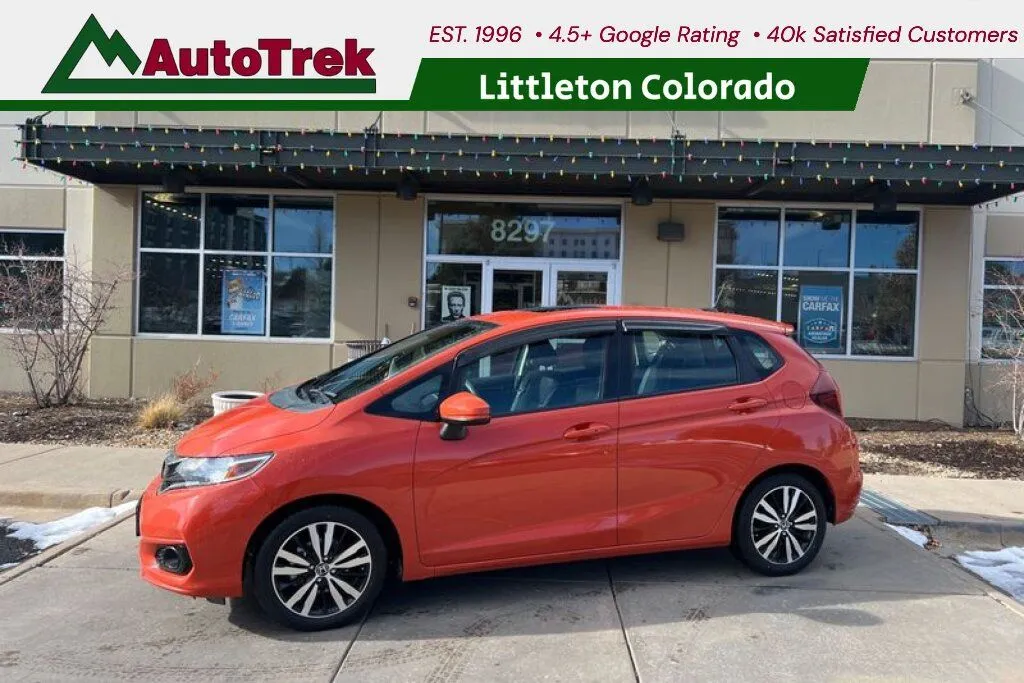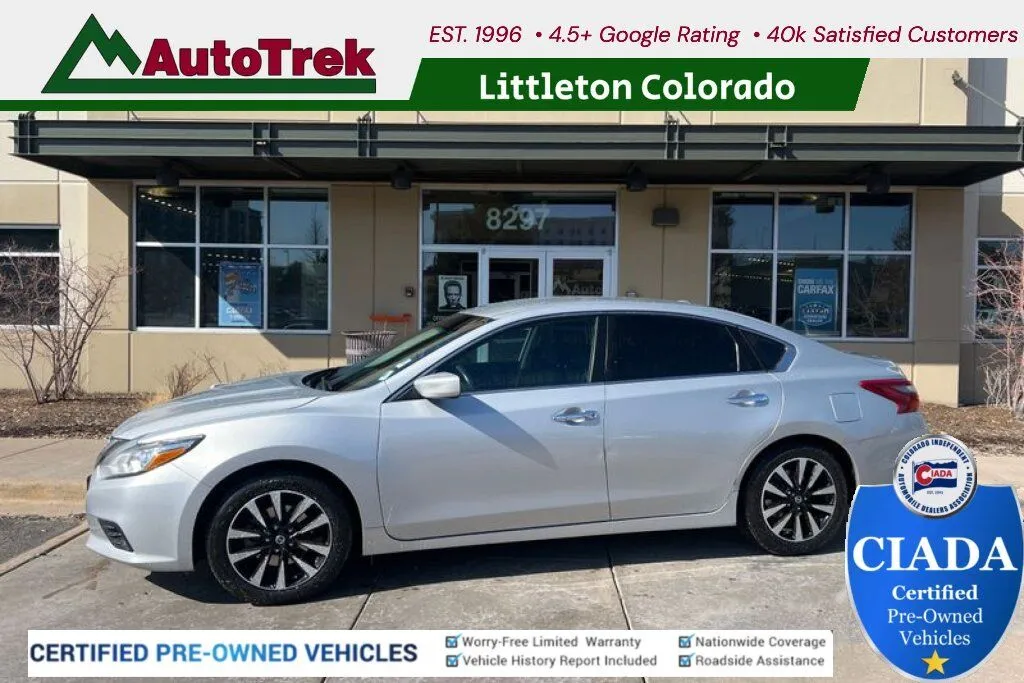Should You Buy An SUV Or A Sedan: A Quick Comparison
Buying a car is a significant decision, and choosing between an SUV or sedan can be challenging. Each vehicle type offers different advantages, making one better suited for specific needs. An SUV offers more space, higher ground clearance, and better visibility.
A sedan is lighter, more fuel-efficient, and often easier to maneuver in tight spaces. Understanding the difference between SUV and sedan helps buyers make an informed decision.
By comparing features, cost, and driving experience, this guide will help determine which option works best for daily commutes, family trips, or outdoor adventures.
Understanding the Key Differences
The difference between an SUV and a sedan goes beyond size. SUVs have a taller, boxy design that provides extra interior space and a commanding road presence. Sedans have a lower profile with a sleek, aerodynamic build that enhances fuel efficiency and handling.
Most SUVs come with higher ground clearance, allowing them to handle rough terrain better than sedans. Some models offer all-wheel drive (AWD) or four-wheel drive (4WD), improving traction on slippery or uneven roads.
Sedans, on the other hand, are built for smooth performance on paved roads. Their lower stance improves stability, making them easier to drive at higher speeds. They also tend to have better fuel economy compared to SUVs.
Interior Space and Comfort
One of the biggest reasons buyers choose an SUV is for its spacious interior. Families, road trippers, and outdoor enthusiasts appreciate the extra legroom and cargo capacity that SUVs offer. Many models provide three rows of seating, making them a practical choice for larger families.
SUVs also offer better headroom and shoulder space, which makes long drives more comfortable. If carrying passengers or hauling gear is a priority, an SUV provides the flexibility needed.
Sedans, while smaller, still offer comfortable interiors. Many midsize and full-size sedans provide ample room for passengers, but they may not match an SUV’s versatility. Cargo space in a sedan is more limited, although most models include fold-down rear seats to create additional storage.
For those who drive alone or with a small family, a sedan’s compact design may be enough. However, anyone needing extra room for passengers, pets, or equipment may prefer an SUV.
Fuel Efficiency and Cost of Ownership
Fuel efficiency is an important factor when deciding between an SUV or sedan. Generally, sedans consume less fuel due to their smaller size and lighter weight. This makes them a better choice for buyers looking to save money on gas.
A compact sedan can achieve 30-40 miles per gallon (MPG), while many SUVs average 20-30 MPG. Hybrid sedans push fuel efficiency even further, making them ideal for frequent commuters.
SUVs require more fuel due to their size, weight, and higher ground clearance. While compact SUVs offer better efficiency than full-size models, they still use more gas than a sedan. Buyers who drive long distances regularly may find a sedan more economical.
Beyond fuel costs, sedans often have lower insurance rates and maintenance costs. SUVs tend to have higher ownership expenses, from larger tires to more complex drivetrains. While both vehicle types offer long-term reliability, a sedan generally costs less to maintain.
Driving Experience and Handling
The driving experience differs significantly between an SUV and a sedan.
SUVs offer a higher driving position, which improves road visibility. This can be beneficial in heavy traffic or poor weather conditions. Their larger size also provides a sense of security, as they tend to perform better in crash tests.
However, SUVs feel heavier on the road and may not handle corners as smoothly as sedans. Their weight can also lead to longer braking distances, especially at high speeds. Parking and maneuvering in tight spaces may be more challenging due to their size.
Sedans provide a more responsive driving experience. Their lower center of gravity improves stability, reducing the risk of rollovers. The steering feels more precise, and braking distances tend to be shorter. Drivers who prefer a smooth, easy-to-handle ride may find a sedan more enjoyable.
For those who live in areas with snowy or uneven roads, an SUV with AWD or 4WD may offer better traction and control. However, for city driving and highway commutes, a sedan is often the better choice.
Safety Features and Crash Protection
Safety is a top priority when choosing any vehicle. Both SUVs and sedans come equipped with modern safety features, but their crash protection differs.
SUVs are heavier and sit higher on the road, giving them an advantage in collisions with smaller vehicles. Their sturdy build absorbs impact well, reducing the risk of injury in certain types of crashes. However, they have a higher center of gravity, which increases the likelihood of rollovers during sharp turns or high-speed maneuvers.
Sedans, with their lower stance, offer better stability in emergency situations. They tend to have shorter braking distances, allowing for quicker stops. Modern sedans come with advanced safety technologies such as adaptive cruise control, lane departure warning, and automatic emergency braking, making them just as secure as SUVs.
While SUVs may feel safer due to their size, sedans offer better handling, which can help avoid accidents altogether. Both vehicle types provide excellent safety ratings, so the choice depends on personal driving conditions and preferences.
Cost Comparison
The initial purchase price plays a major role in deciding between an SUV and a sedan. On average, sedans cost less than SUVs, making them a more budget-friendly option for many buyers. The difference in price varies by model and trim level, but SUVs typically have higher starting prices due to their size, added features, and off-road capabilities.
A compact sedan often starts at a lower price than a compact SUV with similar features. Full-size SUVs, particularly those with advanced technology and towing capacity, come at a premium. Buyers on a tight budget or those looking for a practical vehicle for daily commuting may prefer a sedan to keep costs down.
When it comes to resale value, SUVs tend to retain their value better than sedans. Market demand for SUVs remains high, leading to slower depreciation compared to sedans. Buyers who plan to upgrade or sell their vehicle in a few years may find an SUV a better long-term investment.
For those looking at pre-owned options, used SUVs for sale in Littleton, CO provide an affordable way to own a spacious and capable vehicle without paying full price for a new model.
Towing and Cargo Capacity
SUVs are the better option for those who need to tow trailers, boats, or heavy loads. Even smaller crossover SUVs offer towing capacity that most sedans cannot match. Mid-size and full-size SUVs, especially those equipped with V6 or V8 engines, can handle thousands of pounds with ease.
While sedans do offer cargo space, their trunks are smaller compared to an SUV’s rear storage area. Many SUVs have fold-flat rear seats, creating even more room for transporting larger items. Those who frequently carry sports equipment, camping gear, or work tools may find the extra cargo space in an SUV more practical.
For drivers who need a vehicle for light-duty towing and occasional cargo hauling, a compact SUV may be enough. However, those who rarely transport large loads may find a sedan’s trunk space sufficient for everyday use.
Urban Vs. Rural Driving Needs
The environment where the vehicle will be driven also plays a role in choosing between an SUV or sedan.
Sedans are well-suited for city driving due to their smaller size, better fuel economy, and ease of parking. In urban settings where tight parking spaces and narrow streets are common, a sedan provides better maneuverability. It is also easier to weave through traffic and navigate congested roads.
SUVs perform well in rural or off-road environments. The higher ground clearance allows them to handle rough roads, potholes, and dirt trails more effectively. Those who live in areas with frequent snowfall or heavy rains may prefer an SUV with all-wheel drive (AWD) or four-wheel drive (4WD) for better traction on slippery surfaces.
If daily driving consists of highway commutes and city streets, a sedan may be the better choice. If rough roads or seasonal weather conditions are a concern, an SUV offers better versatility.
Family-Friendly Features
Families often prioritize safety, space, and convenience when choosing a vehicle. SUVs cater well to these needs, with larger interiors, more seating capacity, and additional storage space. Many three-row SUVs offer seating for up to seven or eight passengers, making them ideal for larger families.
SUVs also offer higher seating positions, making it easier for parents to load children into car seats without bending down. Many models include rear-seat entertainment systems, extra USB ports, and climate control settings for passengers in different rows.
Sedans remain a practical choice for smaller families. They are easier for young children to climb into and tend to have a quieter cabin due to their aerodynamic design. While they lack the space of an SUV, midsize and full-size sedans provide enough room for most families without the added fuel costs of an SUV.
Find the Perfect SUV or Sedan with AutoTrek
Deciding between an SUV or sedan depends on driving habits, budget, and lifestyle needs. Sedans offer better fuel efficiency, lower costs, and smooth handling, making them ideal for city driving and long commutes. SUVs provide more space, higher ground clearance, and better performance in rough conditions, making them a great choice for families and outdoor adventures.
At AutoTrek, we offer a variety of used cars, trucks, and SUVs for sale in Littleton, CO, as well as reliable sedans to fit different lifestyles. Call (303) 934-5600 today or request a quote to find the right vehicle for you.










